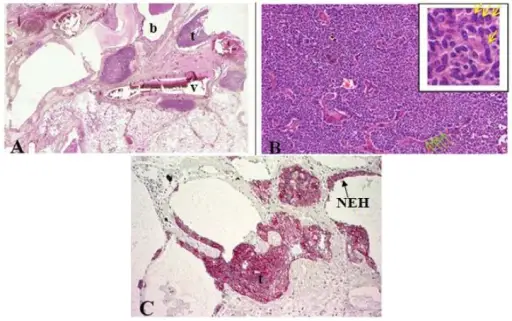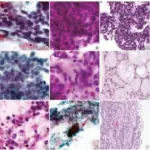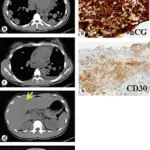Neuroendocrine tumors of the lung aka carcinoid tumors are lung tumors that present with an aggressive form.
What is the Pathology of Neuroendocrine Tumors of the Lung?
The pathology of carcinoid tumors is:
-Etiology: The cause of carcinoid tumors is mostly by mutation of the oncogenes
-Genes involved: MEN1, RET, and MEN2 genes.
-Pathogenesis: The sequence of events that lead to carcinoid tumors is malignant proliferation.
-Histology: The histology associated with carcinoid tumors shows different patterns under the microscope. It shows solid, nodular, and insular cords, ribbons with anastomosing features, tubules and glands, poorly differentiated patterns, and lastly the mixed type.
How do Carcinoid Tumors Present?
Patients with carcinoid tumors typically present equally in women mostly that are older. The symptoms, features, and clinical findings associated with carcinoid tumors include hemoptysis and secondary infection, cough, atelectasis.
How are Carcinoid Tumors Diagnosed?
These Carcinoid Tumors are diagnosed by Octreoscan a special scan used to identify the carcinoid tumor by injecting a radioactive substance in the affected area X-ray and scans, biopsy, urine tests, and blood tests.
How is Carcinoid Tumor Treated?
The Carcinoid Tumor is treated by surgery if they are not too big. Octreotide medication is given to minimize the spread.
What is the Prognosis of Carcinoid Tumors?
The prognosis of carcinoid tumors is good with a survival rate of 5 years 78-95% and a 10-year survival rate of 77-90%.



